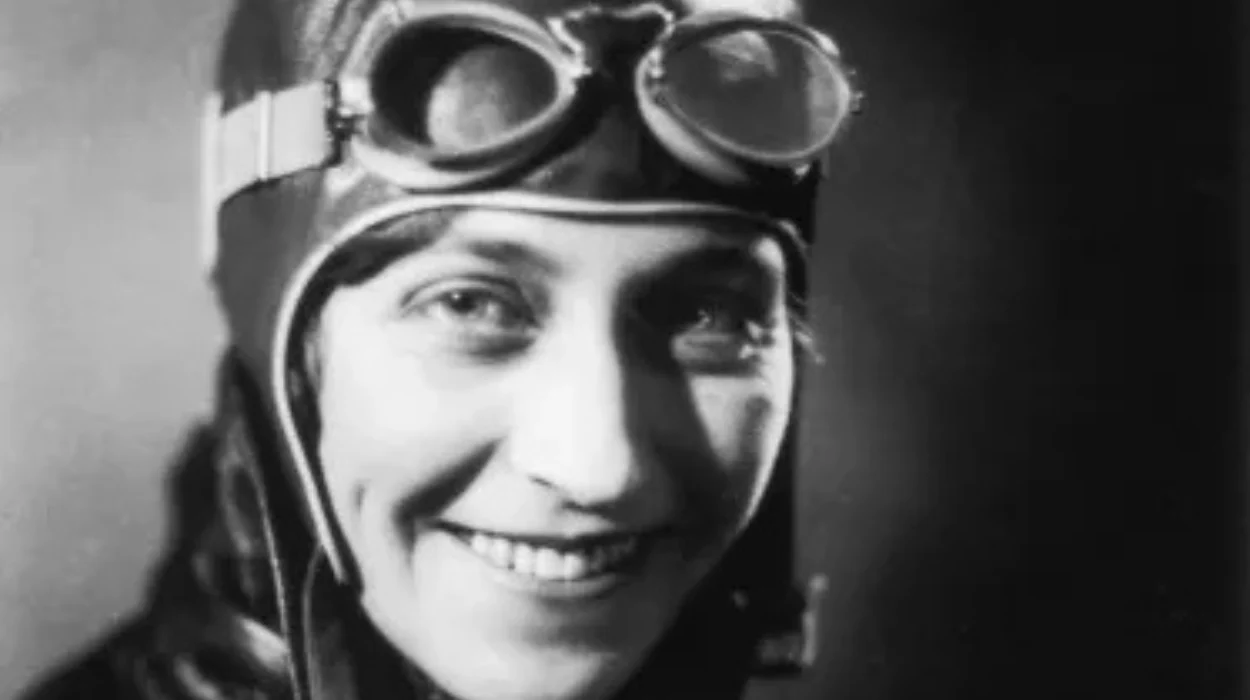Croydon (Parliament Politics Magazine) – Croydon Airport commemorates 95 years since Amy Johnson’s solo flight to Australia with the “Amy 95” weekend, featuring talks, exhibitions, and performances.
To commemorate the 95th anniversary of one of the most important flights in aviation history, Croydon Airport and the Aerodrome Hotel have partnered to organize a number of events throughout the May Bank Holiday.
Amy Johnson took off in her small aircraft from Croydon Airport in 1930, becoming the first woman to fly alone from England to Australia.
Now, Amy 95, a family-friendly event series designed to inspire future aviation enthusiasts, is being held on May 3 and 4 at locations immediately off the Purley Way (and beyond) with funding from Arts Council England.
A rare biplane flypast, children’s workshops, a temporary Amy Johnson display, and guided tours of the world’s first Air Traffic Control Tower are all planned.
Over the anniversary weekend of Johnson’s amazing trip to Australia, the Flying High weekend will honor her legacy.
The weekend’s events also include a special showing of actress Jenny Lockyer’s critically acclaimed one-woman show, Amy Johnson: Last Flight Out, on Saturday night at Trinity School’s The Mitre Theatre.
The renowned Croydon Airport open days are expanded upon this weekend.
Every month on the first Sunday, thousands of visitors from all over the world have come to the Grade II*-listed Art Deco Croydon Airport House to experience the beauty of this important and noteworthy structure.
Known as the birthplace of modern aviation, Croydon Airport has many aviation firsts, such as being the first to use air traffic control and serving as the starting point for numerous record flying attempts, including those by Bert Hinkler of Australia, Jim Mollison of Scotland, Jean Batten and Amy Johnson of New Zealand, and others.
Imperial Airways, Britain’s first national airline, was established in 1924 as a result of a government-sponsored merger and was headquartered in Croydon. British Airways eventually replaced Imperial Airways.
During the 1920s and 1930s, the airfield served as the starting point for numerous notable aviators’ record flights, including those made by Jean Batten, Bert Hinkler, Alan Cobham, Jim Mollison, and Amy Johnson, who flew alone to Australia in 1930.
Croydon returned to Royal Air Force command during World War II and was used as a vital airfield for Hurricanes and Spitfires during the Battle of Britain.
The exciting solo journey to Australia began on May 5, 1930, when a small green de Havilland Gipsy Moth aircraft took off from Croydon Aerodrome, which was then the sole international airport in Britain.
Amy Johnson, 26, had stated that she intended to establish herself in aviation and have adventures despite being an unknown pilot with only a few months of flying experience. She was supposed to accomplish it with this flight.
Johnson obtained her ground engineer’s license in order to prepare for her trip and because she was determined to be able to maintain her own aircraft. In the world, she was only the second woman to do so.
Johnson then flew Jason, the name she had given her open cockpit biplane, 11,000 miles over 19 1⁄2 days across some of the world’s most hostile waters and terrain.
Johnson did not beat Hinkler’s record time to Australia because of the monsoons, but she did beat his record to India and arrived safely in Darwin, Northern Territories.
Micha Nestor, the visitor centre manager at Historic Croydon Airport, said:
“The core idea behind Amy 95 is to highlight the often-overlooked role of women in aviation and STEM subjects.
Amy Johnson’s success in a male-dominated field was groundbreaking and this event aims to continue her legacy by encouraging diversity in these fields. We hope that Amy 95 will inspire young people – particularly women – in the local area of Croydon, as well as promoting careers in aviation and engineering.”
The Flying High Tour, which is organizing the events during the Flying High Weekend, is also produced by Jenny Lockyer. The tour combines her show’s performances with talks and creative workshops, as well as the debut of FLY Festival, a five-year initiative that was motivated by Johnson and will culminate in 2030, the centennial of her flight to Australia.
“I am beyond happy to be sharing Amy’s story with many more people in partnership with Croydon Airport, as it really is the stuff of dreams,”
Lockyer said.
What are the key historical events associated with Croydon airport?
During World War I, Croydon Airport was first established as Beddington Aerodrome in 1915 as a Royal Flying Corps facility to protect Britain from German Zeppelin and Gotha bomber assaults.
Using old military airfield facilities, Croydon became London’s primary civil airport on March 29, 1920, following the closing of the temporary Hounslow Heath aerodrome.
Croydon was the biggest and most sophisticated airport in the world at the time thanks to a 1928 renovation that included the construction of the first purpose-built airport terminal and control tower in history, which was made possible by Britain’s first airport expansion Act of Parliament in 1925.
The world’s first integrated airport terminal and control tower were among the air traffic control technologies that Croydon invented. Here, radio officer F.S. “Stanley” Mockford created the international distress signal “Mayday” in 1923.

